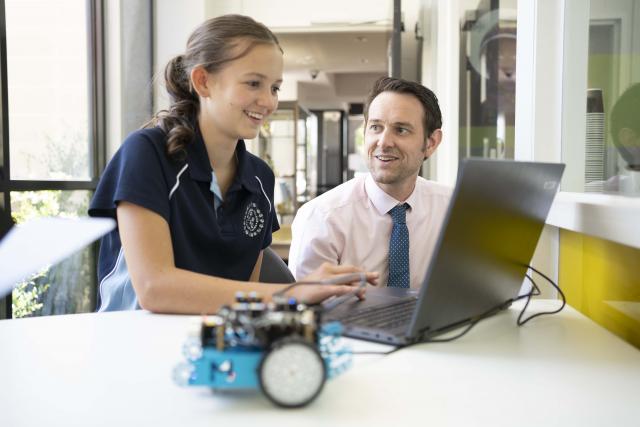A message from Eden Foster, psychologist at St Aloysius College.
As a parent, you often go through the rollercoaster ride with your children as you see them work hard, achieve and at times, fail. You see your child study hard for their exams: staying up late, tears when they don’t understand the topic, joy when they have that ‘lightbulb moment’ and even the fear and anxiety that they will fail. It’s joyous when your child comes home pleased and delighted with their exam results, but when they return from school disappointed and deflated after a lower than anticipated grade, this can be disheartening for any parent.
So, how do you deal with these disappointing moments?
Firstly, it’s important to help your child (and yourself) put these results into perspective. Does this one exam result mean my child will not succeed in life? Of course not! In fact, failure is more likely to help your child succeed, so long as they focus on what they have learnt in the process, what they did well and what they can improve on.
Developing and maintaining a growth mindset is also crucial for dealing with disappointment. Psychologist Carol Dweck coined the terms ‘growth mindset’ and ‘fixed mindset’ to depict how some individuals face challenges. To have a fixed mindset is to believe that our skills are predetermined and cannot be changed. To have a growth mindset is to believe that one’s abilities and qualities can be improved through effort and persistence.
A child who has a fixed mindset will have the belief that a poor grade on an exam or assessment suggests that they cannot do well in the respective subject and is more likely to give up, seeing failure as something irreversible and inevitable for them. A child with a growth mindset however, will see this same exam result as a means to improving and challenging themselves further, whilst building their resilience to deal with future setbacks as they arise.
At St Aloysius we focus on building and maintaining a young person’s growth mindset. We offer additional wellbeing support to guide students and parents through this process and help them deal with setbacks and thrive through the challenges.
Failure and mistakes are inevitable and should be a part of life, for without them do we truly succeed.








